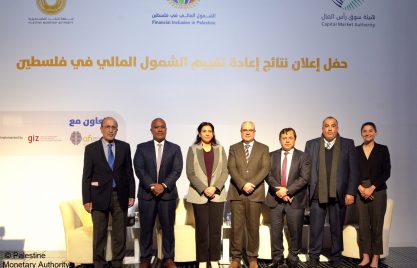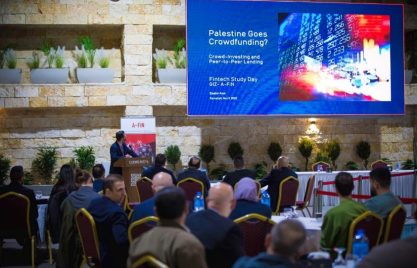PMA representatives participate in training for Microfinance regulation and supervision to foster financial stability in the Palestinian Territories
What is the difference between supervising banks and MFIs? Is it really that different so that it needs an own way of supervision? These or other questions are being treated in a series of workshops that the GIZ set up for the new division of the Palestine Monetary Authority (PMA) that is in charge of microfinance supervision. While looking at the different aspects of onsite and offsite supervision as well as operational risk, the GIZ trainers put great emphasis on a) computerized techniques of supervision, and b) training on the job. In practice, this means that the PMA team have to set up their later used database structure with guidance from the trainers, and use real data to start the first analyses. But before doing an analysis, diverse patterns of risk have first to be understood and pointed to by the experienced microfinance supervision trainers. Using sophisticated data analysis techniques, the PMA microfinance team led by Mr. Motaz Abu Mwais is introduced into the obvious and hidden varieties of risk involved in credit in general, but also in operational issues such as those imposed by insufficient internal controls of MFIs. For the Palestinian microfinance industry, the trainings come along with a first taste of what type of reporting they are going to be required for – which is not without challenges for their IT architecture and staff but a necessary step into an efficient and little burdensome electronic reporting in the future, from which not only MFIs and the PMA will profit but in the end of the day the microfinance clients.
The GIZ trainer team consists of Mr. Carlos Alba and Raul Tapia from Bolivia, and Mark Flaming from the U.S. All of them have 25 years and more of experience in their fields of microfinance supervision all over the world.
By Thomas Rahn



